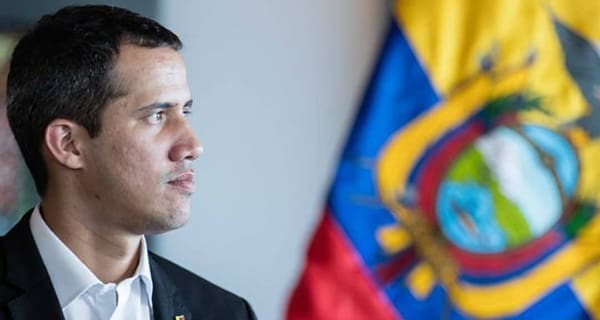 Western nations like Canada and the U.S. have watched the pressure-filled political situation in Venezuela with interest and concern. It’s a powder keg that seems ready to explode at any moment. And it may require our intervention.
Western nations like Canada and the U.S. have watched the pressure-filled political situation in Venezuela with interest and concern. It’s a powder keg that seems ready to explode at any moment. And it may require our intervention.
On one side is Venezeula’s presidential dictator, Nicolas Maduro. The former bus driver and trade unionist is a disciple of Hugo Chavez, the socialist political revolutionary who served as president between 1999 and 2013.
Maduro, like Chavez, opposes free-market capitalism, rejects democracy, promotes redistribution and economic autonomy, and nationalizes industries with reckless abandon.
On the other side is political reformer Juan Guaido. The industrial engineer and centrist social democrat is a longtime opponent of the Chavez-Maduro era. He supports globalization, more openness and transparency in government institutions, and greater individual rights and freedoms. Guaido also wants to rebuild Venezuela’s shattered public image.
Maduro was victorious in a hotly-disputed presidential election late last year and was re-inaugurated on Jan. 10. Most countries around the world, including Canada, support Guaido as Venezeula’s legitimate president, however.
Some world leaders, like U.S. President Donald Trump, are open to the possibility of sending troops to Venezuela to help Guaido overthrow Maduro. Nevertheless, all remain hopeful of a peaceful resolution, rather than widespread bloodshed.
Venezuela has become politically and economically isolated under Maduro’s dictatorial rule. The once-rich oil power faces widespread poverty and hunger, an enormous housing crisis, and a horrendous lack of health services for the sick and needy. Crime rates continue to skyrocket, and violent individuals and gangs have left many Venezuelans afraid for their lives.
The country is also up to its eyeballs in foreign debt. The annual inflation rate hit 80,000 percent at the end of 2018 – and no, that’s not a typo!
Sadly, another issue can be added to the list: a brain drain. The spotlight shone on this area during the massive, nationwide power blackout that occurred between March 7 to 14.
Virtually all 23 states that compose Venezuela’s already-fragile electricity sector were affected. Homes and businesses were looted, and the existing shortages of food, water and medicine escalated. Public transportation came to an immediate standstill, as did the telecommunications industry.
When the power was mercifully restored, Maduro took this opportunity to blame the blackout on … America?
Yes, it was apparently “U.S. technology” that had caused cyberattacks on Venezuela’s electricity grid. Jorge Rodriguez, his communication minister, doubled down on Maduro’s statement and accused U.S. Secretary of State Mike Pompeo and Florida Sen. Marco Rubio of having insider information that was supplied via their Twitter accounts. For good measure, his prosecutor general, Tarek William Saab, claimed Guaido should be investigated because he was “one of the intellectual authors” of these attacks on his poor, defenceless country.
What proof did they have?
As the old phrase goes: zero, zip, zilch.
Venezuela’s state-owned power company Corpoelec had a more sensible response. Officials there blamed the blackout on reduced investment in the domestic electricity sector, and the forces of corruption that refuse to relinquish a scintilla of control over the country’s economy and population.
The exodus of talented individuals, or a brain drain, was another possible reason.
Thousands of Venezuelans have left daily since 2014. More than two million have reportedly fled to other countries – about seven percent of Venezuela’s total population.
So it would make sense that intelligent, educated Venezuelans in the electricity sector would be part of any brain drain. If there aren’t any opportunities in their country to make a comfortable living, they’ll go to other nations that respect their abilities and innovations.
These explanations sound far more plausible than the incessant ramblings of a corrupt, manipulative political leader like Maduro.
Juxtapose this insanity with Guaido, who seems interested in using the free-market economy to encourage citizens to work hard and achieve the financial success they’ve long desired. This would hopefully bring an immediate end to Venezuela’s brain drain.
No one knows whether Guaido would be a better leader than Maduro. He’s certainly saying all the right things, so Canada, the U.S. and other Western democracies must help him get the opportunity to build a better Venezuela.
Let’s hope they’re successful – and, more importantly, that he succeeds.
Troy Media columnist and political commentator Michael Taube was a speechwriter for former Prime Minister Stephen Harper.
The views, opinions and positions expressed by columnists and contributors are the author’s alone. They do not inherently or expressly reflect the views, opinions and/or positions of our publication.


